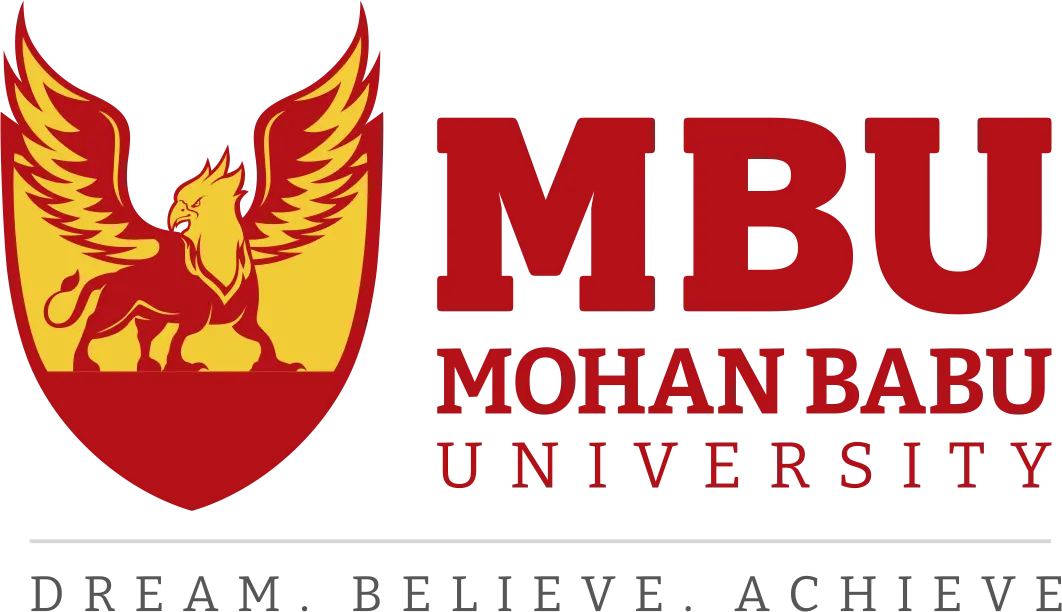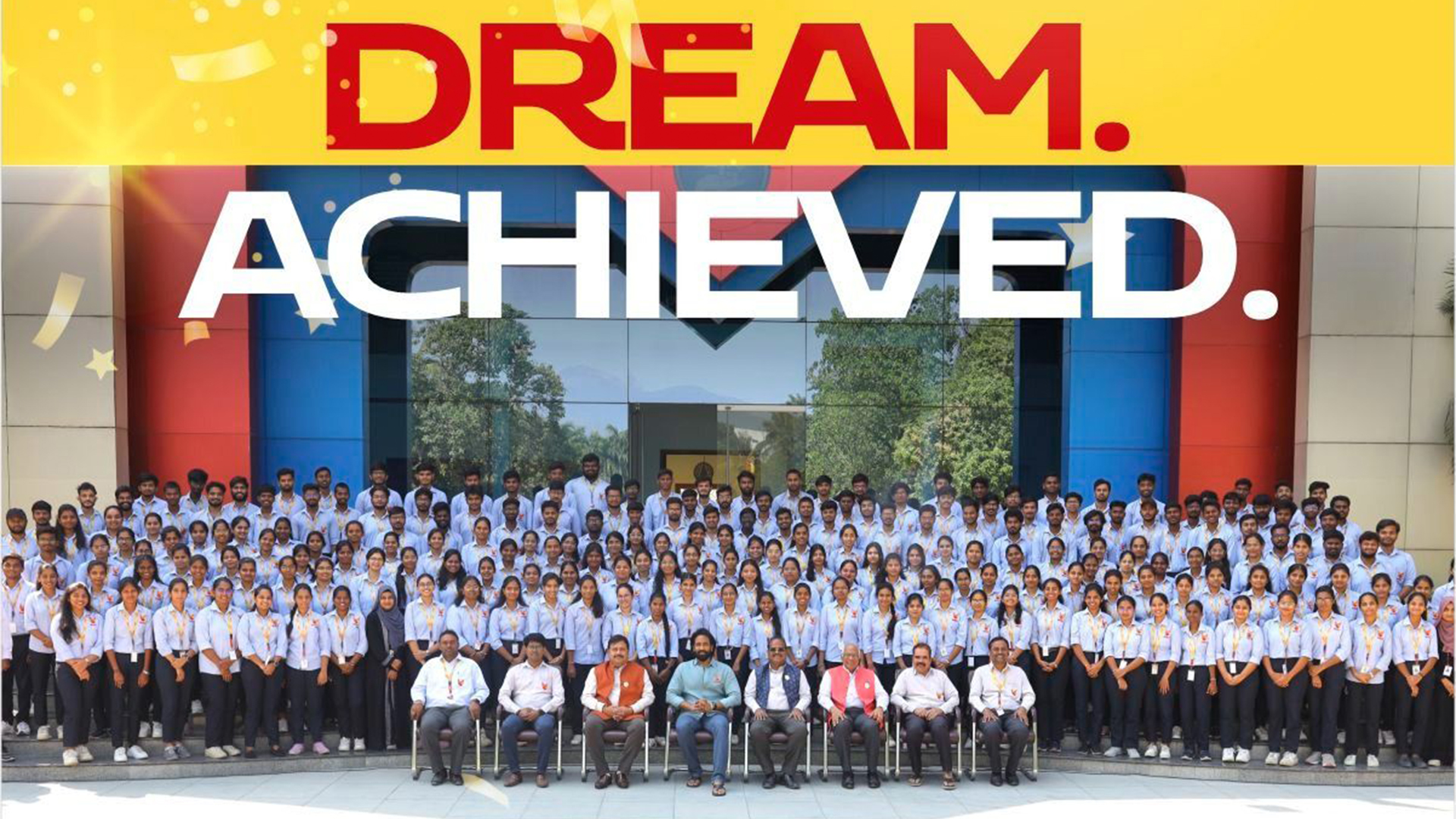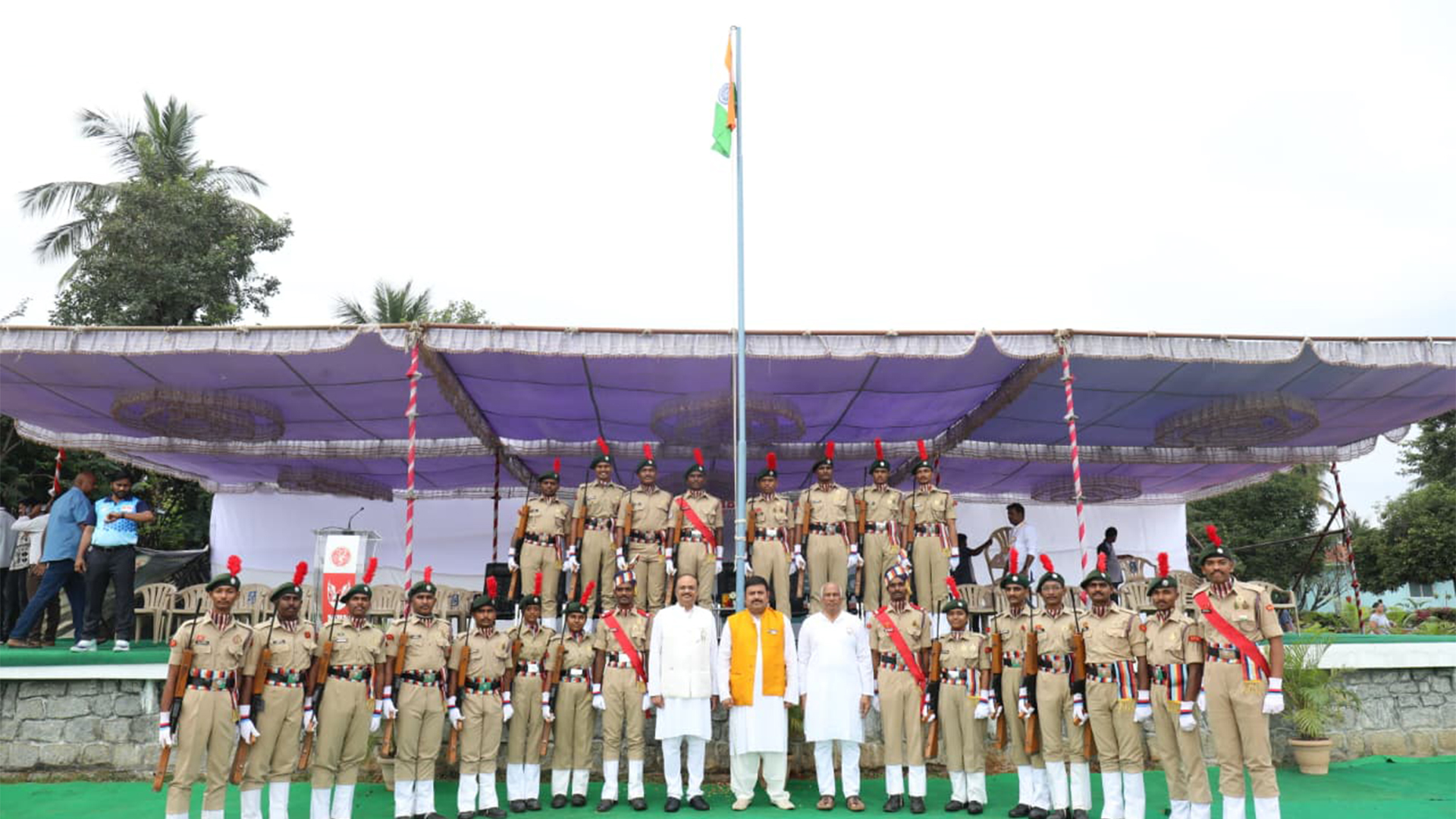The digital era is defined by constant innovation, hyper-connectivity, and the seamless integration of technology into every facet of life. From smartphones and smart homes to automation, AI, and high-speed communication networks, the world is driven by advancements in electronics and communication engineering (ECE). For ambitious students eyeing a career at the heart of this revolution, choosing the right university is as important as the stream itself. Mohan Babu University (MBU) stands out as a premiere destination for students aiming to become industry-ready, future-focused engineers.
A Vision Rooted in Excellence
At the core of MBU’s Department of Electronics and Communication Engineering is a powerful vision to be a center of excellence in electronics, communications, and instrumentation by blending world-class teaching and cutting-edge research. The focus is on producing high-quality engineering professionals and entrepreneurs with strong values, ethics, and a global outlook.
This vision permeates every aspect of the B.Tech ECE program, shaping not just the curriculum, but also the infrastructure, research culture, and student life.
Infrastructure: Cutting-Edge for the Next Generation Engineer
A best-in-class engineering education requires best-in-class infrastructure and MBU delivers on this front spectacularly. The campus boasts an array of smart classrooms, equipped with modern teaching technologies that foster interactive, immersive learning experiences. The real stars, however, are the advanced laboratories and research centers.
- Digital Signal Processing (DSP) Lab: Equipped with industry-leading processors and simulators, enabling students to design and analyze complex digital communication systems.
- VLSI & Embedded Systems Centers: Focused on hardware design, IC applications, and real-world embedded solutions, vital for careers in chip design, IoT, and automation.
- Antennas, Microprocessors & Microcontrollers Labs: Spaces for innovation, prototyping, and solution development skills highly sought by employers.
- Simulation & Communication Systems Labs: Where students work on next-gen wireless, optical, and satellite communications, mirroring latest tech industry trends.
- Central Library: Access to over 1.4 lakh books, 21,504 titles, and 8,125 e-journals, supporting both coursework and research aspirations.
Campus life at MBU is equally vibrant, featuring over 65 hobby clubs, IEEE and ACM special interest groups, and world-class sports infrastructure, including cricket, basketball, tennis, and more. Safety and comfort are ensured through 45-acre CCTV-secured grounds and five-star rated hostels, cultivating a nurturing and holistic student environment.
Curriculum: Innovation Meets Industry
MBU’s B.Tech Electronics and Communication Engineering curriculum isn’t just broad it’s future-ready. Over a rigorous 4-year span (160 credits), students gain a robust grounding in both fundamental and emerging ECE domains. Core subjects include:
- Digital Signal Processing
- Image Processing
- Electronic Circuit Analysis and Design
- VLSI and Embedded Systems
- Microcontrollers and Microprocessors
- Advanced Communication Technologies
What truly distinguishes the MBU curriculum is its integration of research-driven pedagogy and industry-aligned content. Flipped classrooms, project-based learning, and mind-mapping are unique approaches that bridge theory with hands-on practice. Students are continuously assessed and mentored to develop analytical, creative, and problem-solving skills.
MBU is constantly updating the syllabus to reflect evolving technology landscapes embedding courses on IoT, Artificial Intelligence, Smart Devices, and modern electronics. Students can opt for in-demand specializations, such as Embedded Systems and IoT, further customizing their education to suit personal interests and market demands.
Research and Innovation: Fuel for Ambition
ECE at MBU isn’t just about learning existing technologies—it’s about driving innovation. The department actively encourages participation in projects, hackathons, and industry tie-ups. Research thrives in collaboration with prestigious international partners such as University of Wisconsin-Madison, RWTH Aachen, and Pennsylvania State University. Students regularly work on grant-funded research in MEMS/NEMS, VLSI, IoT, communication protocols, and AI applications.
Dedicated guidance from PhD-qualified professors, exposure to patents, and opportunities for publishing in renowned journals make the research culture at MBU robust and forward-looking. By graduation, many students already have significant portfolio pieces, research papers, and even patents to their name.
From Classroom to Career: The Placement Edge
MBU’s B.Tech Electronics and Communication Engineering graduates are highly sought after by the best in the business—both in India and globally. In the 2023-24 placement season, over 1,800 job offers were made to MBU students, with more than 110 multinational corporations participating in the drives. Some of the highest recorded packages reached an impressive ₹60 lakh per annum, with placements at tech giants like Google, Amazon, and YugaByte (offering up to ₹45 lakh).
Career prospects span across:
- Telecommunications and Networking
- Defense and Space Research
- Hardware and Chip Manufacturing
- IT, Railways, and Power Sectors
- Automation, Embedded Systems, and IoT
- Research, Academia, and Entrepreneurship
This breadth is enabled by the program’s strong technical focus, continuous placement-readiness training, and partnerships with top recruiters. Workshops, mock interviews, and English proficiency sessions ensure every student is well-prepared to face the competitive job market.
Global Exposure and Entrepreneurial Spirit
International collaborations mean students can participate in exchange programs, joint certification courses, and global research initiatives. This global outlook is vital in a world where electronics and communication know no borders. At the same time, MBU is deeply invested in promoting entrepreneurship. Through its Innovation Council, incubation cell, and mentorship programs, the university supports students who dream of starting their own venture or product line in the tech space.
Culture, Community, and Personal Growth
Campus isn’t just about academics—it’s about community, diversity, and personal transformation. MBU’s ECE students participate in technical competitions, cultural festivals, social impact projects, and leadership programs. From coding marathons to sports days, life at MBU is dynamic and deeply engaging. Ethics and values are woven into every aspect of the program, ensuring graduates not only excel professionally but also stand out as conscientious leaders and responsible global citizens.
Conclusion: Step Into the Future With Confidence
In a world shaped by innovation and powered by connectivity, Electronics and Communication Engineering offers endless opportunities—and Mohan Babu University is the launchpad for success. With its visionary approach, state-of-the-art infrastructure, globally benchmarked curriculum, powerful placement record, and supportive campus culture, MBU stands unrivaled for anyone aspiring to be a technology leader.
Shape your digital future. Join the B.Tech Electronics and Communication Engineering Program at MBU—and engineer tomorrow’s world, starting today.







